Hard Water Treatment
Watson Well has worked with many residential and commercial growers through the years who have complained about the hardness of their water. This is especially the case when water supplies are from water wells. Although both types of customers share a common problem of water hardness, the effects of hard water can affect each in very different ways.
While irrigating crops with hard water doesn’t pose a health issue for people, it does have a negative impact on irrigation delivery systems, soil quality, and ultimately the plant’s health. At first glance, residential users suffer cosmetic problems from hard water but their real issue can be much deeper than they realize, especially when using newer more modern home appliances.
What is hard water, and why is it a problem?
Hard water is comprised of dissolved calcium (Ca) and magnesium (Mg). These are all in the form of salts, such as calcium carbonate. When water travels through the earth’s formation where it is chalky or has a lot of limestone, the water leaches these minerals out of the formation and ‘carries’ them in solution.
This can be a problem, as minerals will precipitate out of the solution when oxidized, leaving a chalky white, yellow, or brownish deposit. Homeowners are most familiar with hard water due to the buildup and stains it causes in sinks, glass, bathroom tubs, and toilet bowls.
In recent years most residential homes are no longer plumbed using galvanized pipe (which is very porous and conducive to mineral scaling). Pipes, flexible tubing, and plumbing fittings are being constructed of newer modern materials which are resulting in less buildup or scaling and have less propensity for clogging and restricted water flow. However, hardness issues have not gone away and in some instances have a more severe and immediate impact on water systems. Newer and more modern home appliances, low flow fixtures, and toilets used in today’s home construction are drastically impacted when exposed to hard water scaling and mineral buildup. Modern appliances and fixtures are enemies with hard water and have very little tolerance for any destructive hard water mineral deposits.
For farmers, this buildup is a much bigger problem. Over time, hard water buildup can damage delivery systems including pumps, nozzles, sprayers, and other system components as well as negatively impacting farming soils.
The hardness of water is usually measured in ppm or milligrams per liter (mg/L) and is commonly converted to grains per gallon (gpg). The higher the number, the harder the water (and the more minerals that are dissolved in it). As we define and use different matrixes to communicate soft or hard water, the United States Geological Survey uses the following parameters:
- Soft: 0 to 3.5 gpg / 0 to 60 ppm
- Moderately hard: 3.51 to 7.00 gpg / 60.1 to 120 ppm
- Hard: 7.01 to 10.50 gpg / 121.1 to 180 ppm
- Very hard: More than 10.50 / More than 180 ppm
It is not unusual for farmers to have issues with hard water that is way off the scale. Even in residential and commercial contexts, extremely hard water isn’t unusual and hard to find. Although municipal water operations deliver bacteria, heavy metal, iron, and manganese-free water, they do not typically treat for water hardness.
We have installed industrial-scale water softeners in hotels and other commercial facilities with hard water that measured 22 grains hard (376.6 ppm) and greater. One commercial hotel in less than five years was replacing fixtures, shower glass, hiring additional staff to polish water spots from silverware, and repairing significant problems with boilers, swimming pool tiles, and hardware. The same levels of hardness impact residential homes, except residential treatment systems are much smaller in size. But for farmers, hard water can be a much bigger headache.
Why is hard water a problem for farmers?
Farmers often get their irrigation water from wells that have been drilled into underground water sources, or aquafers. As rain, snowpack, or surface water works its way through the earth’s formation recharging the aquifers, the water has had long periods of exposure to different soils and ample opportunity to naturally absorb different minerals along the way.
When we say absorb, the minerals are actually absorbed into the solution. As the oxidation process begins (which can be as soon as the water enters the well), the minerals come out of solution and begin to attach to everything they come in contact with beginning with pumps, pipes, and so on. We refer to this attachment as deposits or scaling. In reference to deposits or scaling in the well, with the use of a well camera, we have seen significant hard water deposits or scaling right at the well casing perforations (perforations are slots in the well casing that water will flow through to enter the well).
Over time, the hard water scaling or deposits at the location of the perforations can significantly reduce the well’s performance or yield by blocking water from entering the well. We have seen zones of perforations inside wells, that have completely shut off any water flow through them due to calcium scaling or blockage. To remedy this scaling problem will require well rehabilitation, employing different techniques and chemicals to restore the well to its original performance.
We see three major problems for farmers due to hard water –
Impact on Plants
Hard water is more difficult for plants to absorb and break down than soft water. It tends to bind up soil nutrients, making it more difficult for plants to absorb what they need. To try and compensate, farmers will tend to increase their rate of irrigation, which leads to other problems.
Impact on Soil
As fields are irrigated and water either evaporates or is absorbed into plants and deep into the ground, the soil is left with all the dissolved mineral salts-calcium carbonate, sodium carbonate, various bicarbonates, etc.-carried by the water. In areas where there isn’t a lot of rain to flush out this excess salt, it accumulates, and the salinity of the soil steadily increases.
Over time, this hardens the soil. If you’ve ever been out in a dry region and come across hardpan or caliche, this is the end result of soil that’s been exposed to large amounts of hard water over a long period of time. The buildup of salt causes the soil to bind together, becoming cement-like in extreme cases. When soil has become hardened, water and important nutrients can’t reach plant roots. Consequently, crops fail to thrive, become more susceptible to pests and disease and have lower yields.
Impact on Irrigation Systems
Before hard water ever hits the soil of a farmer’s field, it travels through the irrigation system, leaving behind hard water deposits, which eventually reduces the efficiency of water delivery to the plants. Over time, watering zones may become completely blocked, as is often the case with drip irrigation systems.
Farmers must deal with this by continually unclogging emitters and other components of their delivery systems. Oftentimes they only realize there’s an issue after plants start to yellow and wither. With plants that are already weakened by reduced soil quality and difficulties with nutrient uptake, they may suffer irreversible damage by the time a grower realizes that a sprinkler or drip system isn’t working properly.
In some limited growing applications, such as greenhouses and hydroponics operations, growers sometimes try using reverse osmosis (RO) systems to mitigate many water issues, such as hard water. But ultimately RO has no impact on treating hard water. Furthermore, high levels of calcium and magnesium (the minerals which largely contribute to hard water) cause fouling of the expensive membranes which are critical to the operation and efficiency of RO units. As these growers ultimately learn, reverse osmosis is not a complete or effective means of treating hard water or other minerals that can quickly foul the RO’s membranes. RO may have a specific role in a water treatment scenario but is not always an adequate option, nor a complete fix.
Over many years of working with farmers, we realize they desperately need to reduce the hardness of their irrigation water and end the costly impact it has on their growing operations. This has led us to incorporate the latest in hardness removal technology with the many features and benefits of our agricultural ozone water treatment systems.
When we say we incorporate hardness removal into our ozone systems it is because water hardness is typically not the only mineral or heavy metal problem found in many water sources used for irrigation.
Traditional filtration systems require the ongoing use of chemicals, expensive inefficient filters, and even low-flow RO systems to try and make water suitable for agricultural use. We utilize ozone to deal with many common water issues. Ozone is a powerful oxidizer capable of breaking down minerals, metals, and pathogens many times found in the water supplies.
Our ozone systems generate large amounts of ozone which when injected into water, immediately oxidize or take out of solution undesirable contaminants for ease of filtering. One of the major advantages of our ozone treatment approach is that it’s easily scalable, including our softeners, to be able to treat larger volumes of contaminated irrigation water. The ultimate result is soft water that is safe for crops and doesn’t damage irrigation systems.
Softener systems used to capture hardness minerals need to be regenerated periodically, allowing captured hardness minerals to be released to drain or wherever wastewater is directed. Farmers usually do not want to use softeners because the regeneration process involves a chloride brine solution commonly made from dissolved rock salt pellets. Their fear is the negative impact any residual sodium brine solution may have on the soils or plants’ roots. But by dissolving potassium pellets in a solution tank essentially making a potassium chloride, it will have absolutely no effect on plants or soils-after all, potassium (or “potash”) is a common fertilizer-and has no accumulative effect on the surrounding environment when flushed to drain.
If you have been struggling with hard water impacting the operation of your farm, greenhouse, or other grow operations, Watson Well can help. Give us a call. We’ll work with you to find a solution for your water-quality concerns.




